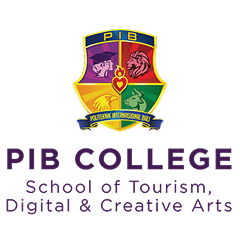
In the ever-dynamic event management industry, becoming an Event Manager requires a profound understanding of various aspects of events, from planning to execution. One of the primary tips that can help you achieve success in this career is mastering the 3C concept. Let’s discuss these components in more detail to understand the importance of 3C in event management for achieving success.
COMMUNICATION
A successful Event Manager must possess exceptional communication skills because this ability forms the foundation of all aspects of event management. Effective communication involves
1. Efficient Negotiation
As an intermediary between clients and vendors, Event Managers need strong negotiation skills to obtain the best prices, top-notch facilities, and advantageous agreements.
The most crucial function of negotiation is to create solutions that benefit all parties. This means no party feels defeated or disadvantaged in the agreement. Through this, all parties can confirm their expectations, requirements, and responsibilities, reducing the risk of errors or miscommunication later.
Additionally, well-conducted negotiations can strengthen relationships among the involved parties. When conducted effectively, negotiations can foster trust and deeper understanding, providing the opportunity for future collaboration.
2. Understanding Client Needs
To deliver an event that aligns with the client’s expectations, it’s crucial to understand their vision. Event Managers must listen attentively and ask relevant questions to thoroughly grasp the client’s desires. By listening actively and asking pertinent questions, Event Managers can avoid misunderstandings between the client’s wishes and the event’s planning. This helps ensure that every element of the event aligns with the client’s vision.
By understanding client needs, you can also gain a deeper insight into the client’s vision from the outset, minimizing changes during the planning process. This saves time, effort, and potential costs that might arise if changes are needed later.
3. Team Coordination
An Event Manager interacts with various teams, including vendors, technical crews, and event staff. The ability to communicate effectively with diverse teams is key to keeping the event running smoothly.
Good communication helps build strong relationships with team members, creating a positive and collaborative work environment. This environment is crucial for the event’s success while ensuring that all parties share a common understanding of the event’s objectives and what needs to be achieved. This motivates the team to work toward the same goals.
4. Emergency Communication
In emergency situations or sudden changes, tension or conflicts among team members may arise. Wise communication can help resolve disagreements in a smoother manner. Therefore, a good Event Manager should be capable of efficient and effective communication to handle such situations calmly.
CREATIVITY
Creativity is a crucial element in creating unique, engaging, and unforgettable events. Some ways to nurture creativity in event management include
1. Concept Design
Developing an intriguing event concept that aligns with the event’s goals is a crucial creative task. This concept serves as a guide for the entire event planning, including venue selection, vendor choices, entertainment selection, and more. It ensures that all aspects of the event support the established concept.
2. Utilizing Cutting-Edge Technology
Implementing the latest technology, such as event apps, augmented reality (AR), virtual reality (VR), and interactive technologies, can bring captivating creative elements to your event.
3. Innovative Entertainment Choices
Thinking outside the box for event entertainment, such as innovative art performances, unique exhibition concepts, or special activities that engage guests.
COORDINATION
Effective coordination is the cornerstone of successful event management. Event Managers must manage all details and aspects of an event efficiently. This includes
1. Detailed Planning
Thoroughly planning and documenting all event aspects, including vendor contracts, schedules, and guest lists, ensures that no detail is overlooked.
2. Time Management
Creating an efficient schedule and ensuring that all event elements run on time is a crucial skill in event coordination. With good time management, you can optimize resource utilization, reducing waste and unnecessary costs.
Time management skills are also invaluable when dealing with sudden changes or emergencies. A well-structured schedule can serve as a guide for making quick and effective decisions.
3. Crisis Management
No planning can predict all possible emergency situations. Despite excellent planning, emergencies can occur. Therefore, a skilled Event Manager should be adaptable and respond effectively when issues arise. The ability to handle unexpected problems calmly and effectively is key to success as an Event Manager.
Mastering the 3C concept – Communication, Creativity, and Coordination – will help you become a professional Event Manager. These skills form a strong foundation for addressing various challenges in the dynamic event management industry.
If you’re interested in delving deeper into the world of event management, you can kickstart your career at PIB College, one of the best tourism campuses in Bali. Join us and explore your potential in the Event Management industry. Registration has been open since September 2023 and will continue until December 2023. Visit pib.ac.id for more information on the Event Management study program at PIB College.
Don’t miss the opportunity to pursue your dreams in the exciting event industry! (STV)

